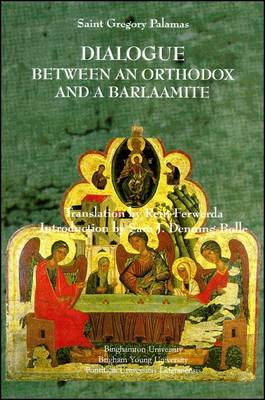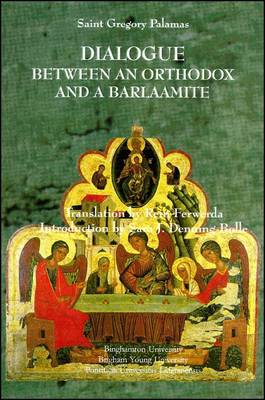
Bedankt voor het vertrouwen het afgelopen jaar! Om jou te bedanken bieden we GRATIS verzending (in België) aan op alles gedurende de hele maand januari.
- Afhalen na 1 uur in een winkel met voorraad
- In januari gratis thuislevering in België
- Ruim aanbod met 7 miljoen producten
Bedankt voor het vertrouwen het afgelopen jaar! Om jou te bedanken bieden we GRATIS verzending (in België) aan op alles gedurende de hele maand januari.
- Afhalen na 1 uur in een winkel met voorraad
- In januari gratis thuislevering in België
- Ruim aanbod met 7 miljoen producten
Zoeken
Omschrijving
In the fourteenth century a controversy arose in the Eastern empire between the Eastern Orthodox Theologian Gregory Palamas and a philosopher and monk from Calabria in southern Italy by the name of Barlaam. Barlaam was working on the problem of union between the Roman and Byzantine churches in the 1330s and actually acted as the representative of the Orthodox church. In his discussions, in which he repudiated the use of filioque (the addition to the Creed of the Holy Spirit proceeding from the Father and the Son), he argued for the unknowable and unapproachable nature of God. Gregory did not take kindly to what he perceived to be agnostic tendencies in Barlaam's thought, and he wrote a treatise about the procession of the Holy Spirit. However, it was particularly Barlaam's later attack on the hesychasts, a certain group of Orthodox monks, that led to a bitter debate between Gregory and Barlaam. Several basic issues were involved, centering on man's knowledge of God. The ideas that were defined in the debate by Palamas became crucial for the future of Eastern Orthodox thought.
Specificaties
Betrokkenen
- Auteur(s):
- Vertaler(s):
- Uitgeverij:
Inhoud
- Aantal bladzijden:
- 118
- Taal:
- Engels
- Reeks:
Eigenschappen
- Productcode (EAN):
- 9781883058210
- Verschijningsdatum:
- 1/01/1999
- Uitvoering:
- Paperback
- Formaat:
- Trade paperback (VS)
- Afmetingen:
- 150 mm x 226 mm
- Gewicht:
- 317 g

Alleen bij Standaard Boekhandel
+ 97 punten op je klantenkaart van Standaard Boekhandel
Beoordelingen
We publiceren alleen reviews die voldoen aan de voorwaarden voor reviews. Bekijk onze voorwaarden voor reviews.









